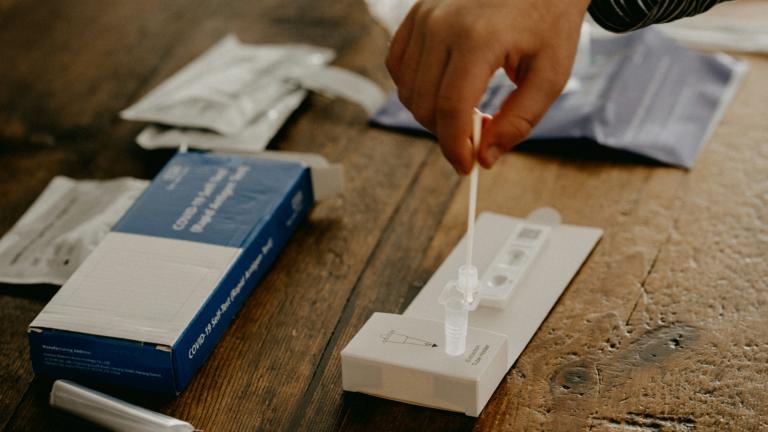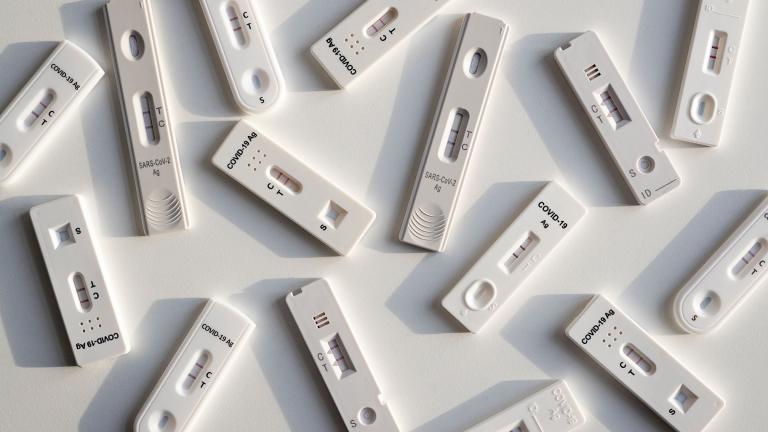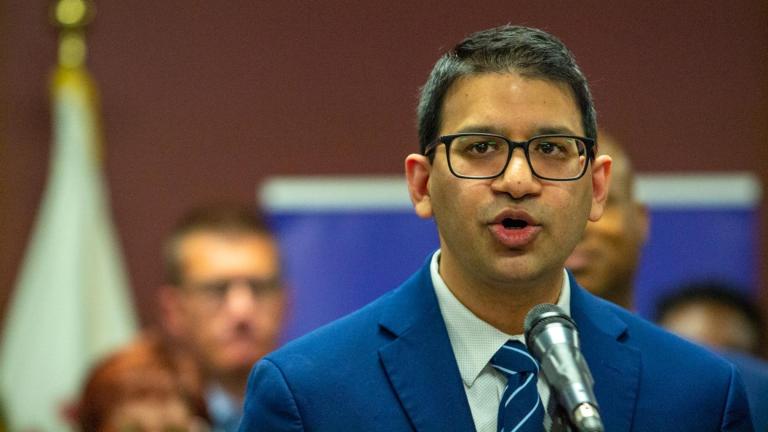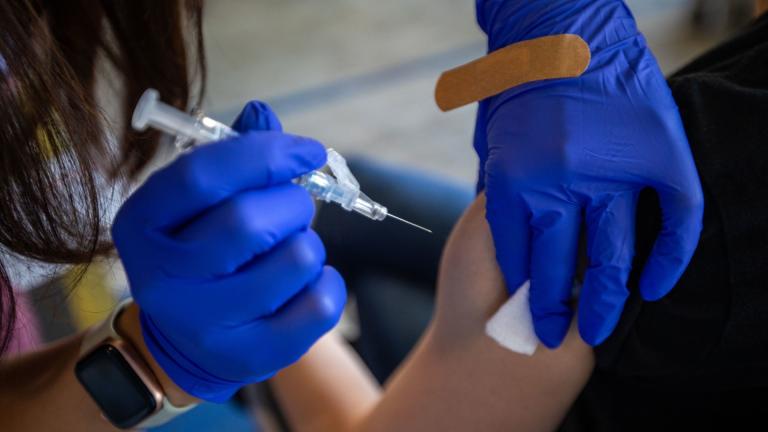Teachers, police officers are others who are refusing to get the coronavirus vaccine are taking a shot at using a longtime Illinois statute to skirt compliance with state and city mandates: Illinois’ right of conscience law.
Per a state order, teachers and health care employees had to receive a first COVID-19 vaccine dose by Sept. 19 or undergo regular testing; similar requirements kick in mid-November for state employees who work in congregate settings.
Chicago Mayor Lori Lightfoot is sticking by an Oct. 15 deadline for city employees, including police. Meanwhile, employers are waiting for a push by President Joe Biden that will institute a vaccine mandate covering all businesses with at least 100 employees.
Illinois’ Health Care Right of Conscience Act is one of the nation’s broadest. It states:
“It is the public policy of the State of Illinois to respect and protect the right of conscience of all persons who refuse to obtain, receive or accept, or who are engaged in, the delivery of, arrangement for, or payment of health care services and medical care.”
The statue’s definition of health care specifically includes “testing,” which those relying on it believe bolsters their legal stance.
“What it’s really intended to do is shield health care professionals from being sued or facing a licensing removal or something of that nature if there is a health care service that they don’t want to provide because of a religious, or a conscience-based objection,” said Ameri Klafeta, director of the ACLU of Illinois’ Women’s and Reproductive Rights Project.
She said typically, the law has come into play when doctors or nurses don’t want to perform abortions; there have also been court cases in which pharmacists fought against filling prescriptions for the morning-after pill.
Recently a dozen or so teachers and staff members at Nauvoo-Colusa Consolidated School District 325 cited the right of conscience law as a reason for refusing to get tested or vaccinated. One individual wrote they believe in their own body’s power to fight COVID-19, that a family member’s prescription drug addiction makes them averse, and that they are wary of chemicals used in the COVID-19 test swab.
“I am proud to be a Viking and in no way do I want to be forced to resign or get fired for not complying to these mandates,” the letter reads. “For these reasons I listed and my personal convictions, I respectfully decline to get the COVID-19 vaccine or participate in your weekly COVID-19 testing as is my right granted to me under the Health Care Right of Conscience Act.”
The school board recently upheld such conscientious objections as a reason staff can refuse to get vaccinated or tested for COVID-19.
“The majority of people I’ve talked to, the majority of the staff members, says it’s discrimination, because if the vaccinated people don’t have to get tested, they feel like they shouldn’t get tested, because vaccinated people – they can spread COVID, and they can have COVID,” Nauvoo-Colusa Superintendent Kent Young said. “Some of ‘em said if the entire staff got tested then they would get tested as well.”
While it is possible for vaccinated individuals to get breakthrough cases of COVID-19, the vaccine protects against severe illness. The vast majority of those hospitalized and dying from the coronavirus are unvaccinated.
Nauvoo-Colusa is also on probation with the state for refusing to abide by Pritzker’s mask mandate, against Young’s recommendation.
“It is challenging in certain aspects with the staff and especially community members and parents,” he said. “Kids are always great. They were great last year – we require them to wear the mask properly, didn’t have any issue. But starting last spring people got tired of it and there’s a lot of information on social media and so that started creating a problem.”
The Illinois Fraternal Order of Police is likewise looking to the Right of Conscience Act.
“We’re not opposed to the vaccine itself. We are opposed to the forced mandated vaccinations. But not at all opposed to the vaccine. We just feel it’s a matter of choice,” state FOP President Chris Southwood said. “This law is there, and it seems to pretty clear and it seems to be gaining ground that this law does in fact apply directly to the vaccine mandates and we really do believe there’s a discrimination part of this law that will protect our members if they seek to get an exemption against the vaccines.”
Southwood had COVID-19 last year, and said he decided not to get the vaccine after talking with this doctor about relying on virus antibodies.
He said Chicago’s leadership should focus on crime prevention rather than vaccine mandates for officers who have been on the front lines throughout the pandemic.
“At some point along the line we need to get our priorities straight and violent crime to me, certainly as it effects children – and I’m talking children here – is far more of a concern for law enforcement than COVID-19’s effect on children,” Southwood said.
Chicago is the FOP’s largest lodge in the state, and it is against Lightfoot’s mandate.
The ACLU’s Klafeta says workers relying on the HCRCA is a stretch.
“The way this act was written, it was always intended to apply to health care professionals, people who are delivering health care services,” Klafeta said. “What we’re seeing now is a really unprecedented expansion, or attempt to expand, the protections of the law and really turning it on its head.”
She thinks this expansion of the right of conscience law will face legal challenges.
“It seems like the people who are really these mandates that Gov. Pritzker has issued are relying heavily on this law and I wouldn’t be surprised if they proceed through the court and I think that would be up to the courts to determine how broadly to interpret this,” Klafeta said. “It’s always possible that in the meantime the legislature could come back and amend the law, potentially to narrow some of the terms that people are relying on to bring the law back to its original scope.”
The legislature is set to be back in Springfield in late October, so lawmakers would have a chance then.
Southwood says there’s a “very good” chance that the Chicago FOP may serve as a test case in court.
The Illinois State Board of Education, meanwhile, is steadfast.
“School personnel who decline both vaccination and testing must be excluded from the school premises,” ISBE said in a statement Monday, and districts with questions about the Health Care Right of Conscience Act should consult with their legal counsel.
Follow Amanda Vinicky on Twitter: @AmandaVinicky








